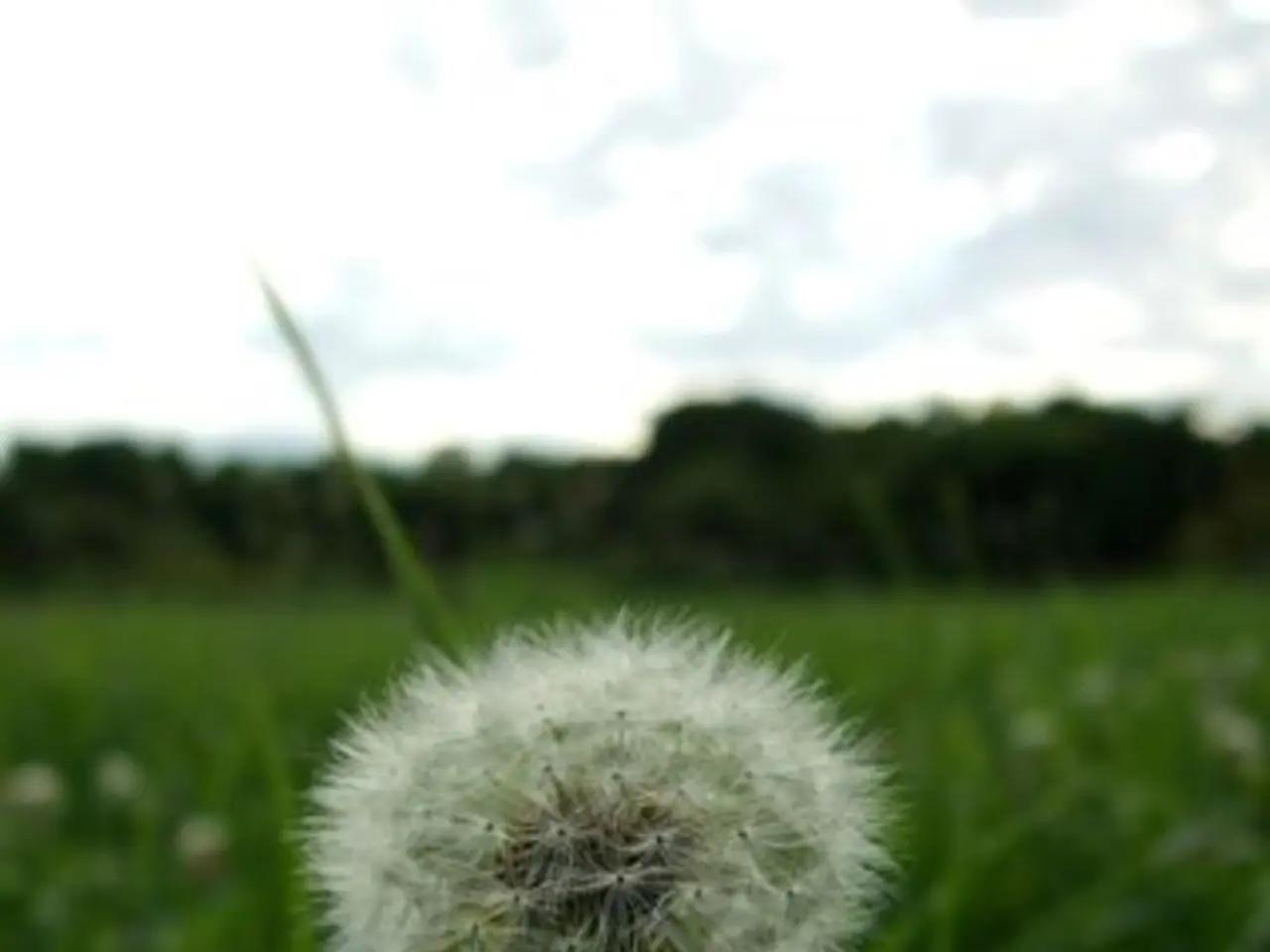Management of Dandelions: Strategies for Eradication
In the quest for a greener and healthier garden, homeowners often face the challenge of controlling problematic weeds, such as dandelions. Known for their deep, large taproots and bright, cheery yellow flowers, dandelions can be a nuisance in garden beds and lawns. However, there are several effective methods for managing these weeds without resorting to chemical herbicides.
One such method is the use of corn gluten meal, a natural byproduct of corn milling that acts as a pre-emergent herbicide. By sprinkling corn gluten meal on your lawn or garden beds, you can prevent dandelion seeds from germinating, as the proteins in the meal starve the roots of water.
Another natural solution is vinegar. Mixing white vinegar with water and spraying it directly on dandelion plants can kill them by damaging the plant tissues they come into contact with. While this method won't systemically kill the roots, repeated applications may be necessary to fully eliminate the weeds.
A simple and non-toxic method is pouring boiling water over dandelions. This process kills the plants, but may require repeated applications to ensure the roots are fully killed.
Mulching is another effective strategy for suppressing dandelion growth. By applying a thick layer of organic mulch to your garden beds, you can block light and prevent seed germination.
Hand pulling and digging is the most effective way to control dandelions in garden areas, especially when the soil is moist. However, this method requires patience and persistence, as dandelions can regrow if any part of the root remains in the soil.
In some situations, herbicides may be a practical method for weed control. It is crucial to apply them as a spot treatment to only the dandelion leaves and protect garden plants with barriers. Non-selective herbicides should be used with caution, as they will kill any green plant material they contact.
Promoting a thick and healthy lawn is also key to preventing new dandelions from establishing. A good nitrogen fertility program, appropriate watering, and proper mowing are sound cultural practices to promote a healthy lawn.
Regular and persistent removal of dandelions is needed each growing season to keep them under control. It is important to prevent dandelions from going to seed to help reduce their spread in garden beds.
For those in Iowa, the best time to apply broadleaf herbicides is in fall (mid-September to early November).
These methods offer alternatives to chemical herbicides, promoting a healthier and more sustainable garden environment. By employing these strategies, gardeners can enjoy a beautiful and weed-free garden without compromising on ecological friendliness.
[1] Cornell University. (2021). Corn Gluten Meal as a Pre-emergent Herbicide. Retrieved from https://extension.psu.edu/corn-gluten-meal-as-a-pre-emergent-herbicide [2] University of California Agriculture and Natural Resources. (2021). Vinegar as a Weed Killer. Retrieved from https://ucanr.edu/sites/IntegratedPestManagementProgram/files/307918.pdf [3] University of Illinois Extension. (2021). Weed Management in Lawns. Retrieved from https://web.extension.illinois.edu/cfivt/weed-management-in-lawns/ [4] University of Maine Cooperative Extension. (2021). Weed Control in Vegetable Gardens. Retrieved from https://extension.umaine.edu/publications/452/
- In the pursuit of a healthier garden, homeowners can employ the use of corn gluten meal, a natural byproduct of corn milling, to prevent dandelion seeds from germinating.
- Vinegar can be another effective solution for managing dandelions in the garden; by mixing white vinegar with water and spraying it directly on the plants, you can kill them by damaging plant tissues.
- For those who prefer a non-toxic method, pouring boiling water over dandelions can kill the plants, though repeated applications may be necessary to ensure the roots are fully killed.
- Incorporating mulch into the garden can block light and prevent seed germination, suppressing dandelion growth and promoting a healthier and more sustainable garden environment.






